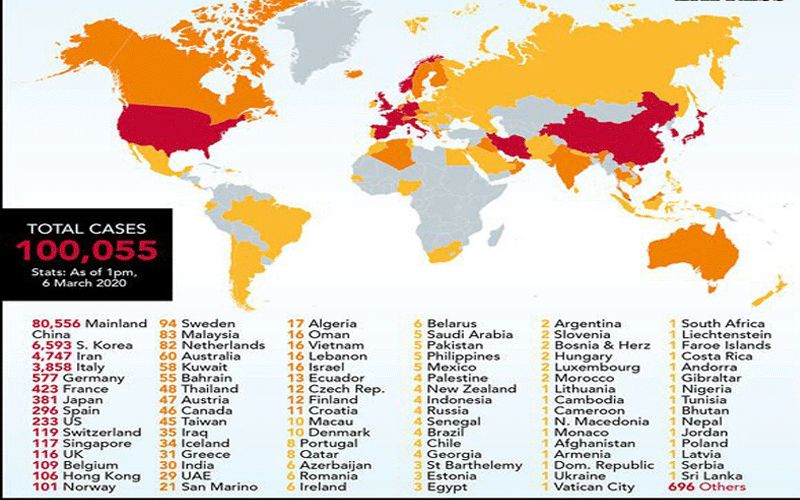Johannesburg, 07 March, 2020 / 12:57 am (ACI Africa).
As the world steps up efforts in tackling the spread of COVID-19 virus, the disease caused by coronavirus, with the most recent cases in Africa confirmed in South Africa and Cameroon, Catholic Church leaders at the helm of the Bishops’ conferences in Africa have expressed concerns that the virus could rapidly spread on the continent if appropriate measures are not taken to prevent its initial spread.
“We need to take precautionary measures without being paranoid because we know that this disease thrives in the action of people and congestive circumstances,” the First Vice President of the Symposium of Episcopal Conferences of Africa and Madagascar (SECAM), Bishop Sithembele Sipuka told ACI Africa, on the sidelines of Standing Committee meeting of SECAM in Kenya’s capital Nairobi.
The South African Bishop who is at the helm of the Southern Africa Catholic Bishops’ Conference (SACBC) added, “We also need to look at what we do in Church: greet by hand, receiving communion but without creating too much of a scare about this.”
“I have written to the Bishops in Southern Africa giving them some kind of guidelines to look at without prescribing to them: area of communion, exchange of peace, and the fountain of Holy water. But the recommendations depend on the appraisal of each Bishop,” the Bishop of South Africa’s Umtata diocese told ACI Africa during the Thursday, March 5 interview.
South Africa confirmed its first case of coronavirus in the country Thursday after a 38-year-old citizen who recently returned to the country from Italy tested positive for COVID-19 virus. According to a statement from the South African Ministry of Health, “the victim and the doctor who first treated him were both in self-isolation in the eastern KwaZulu-Natal province.”








